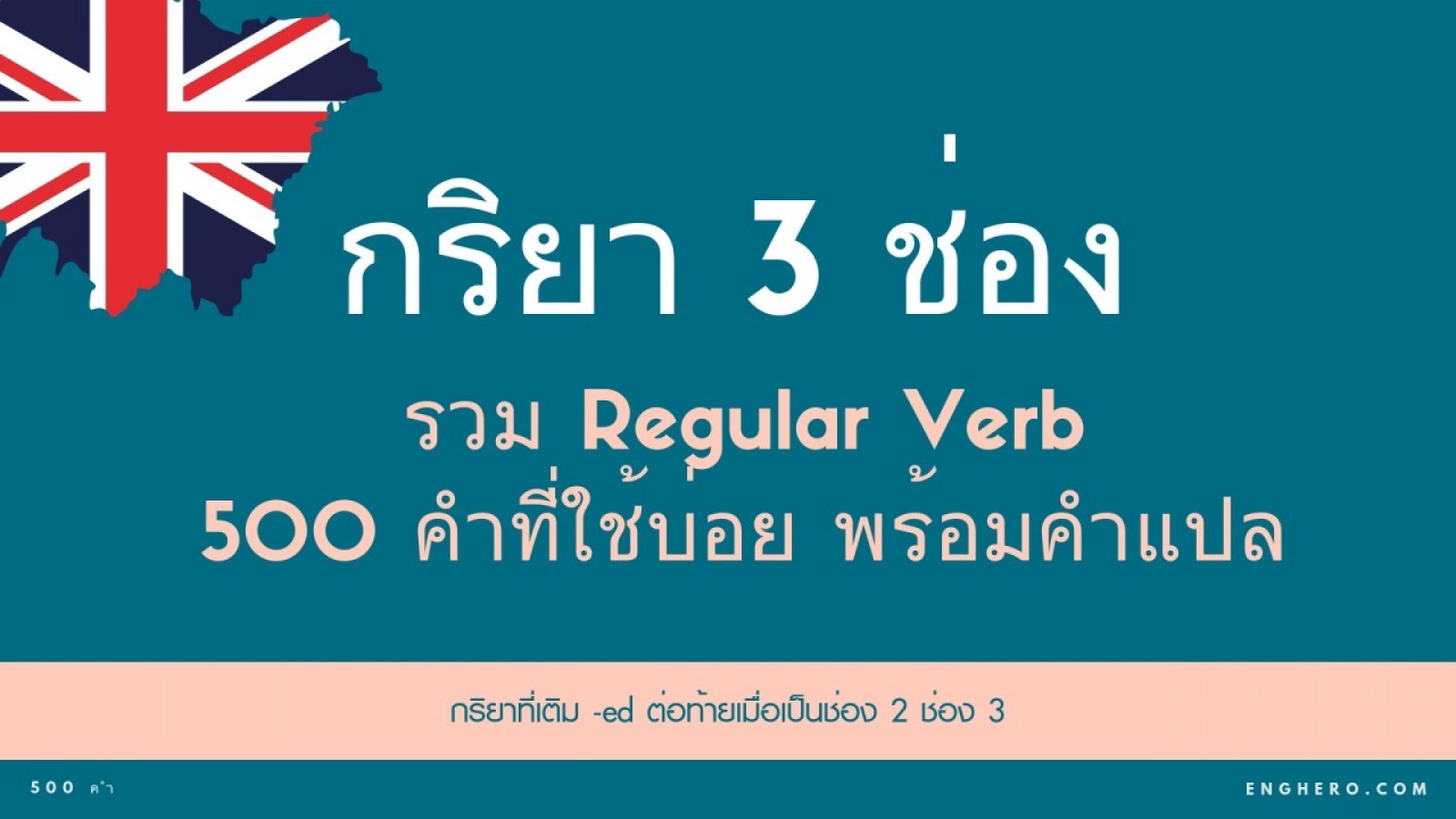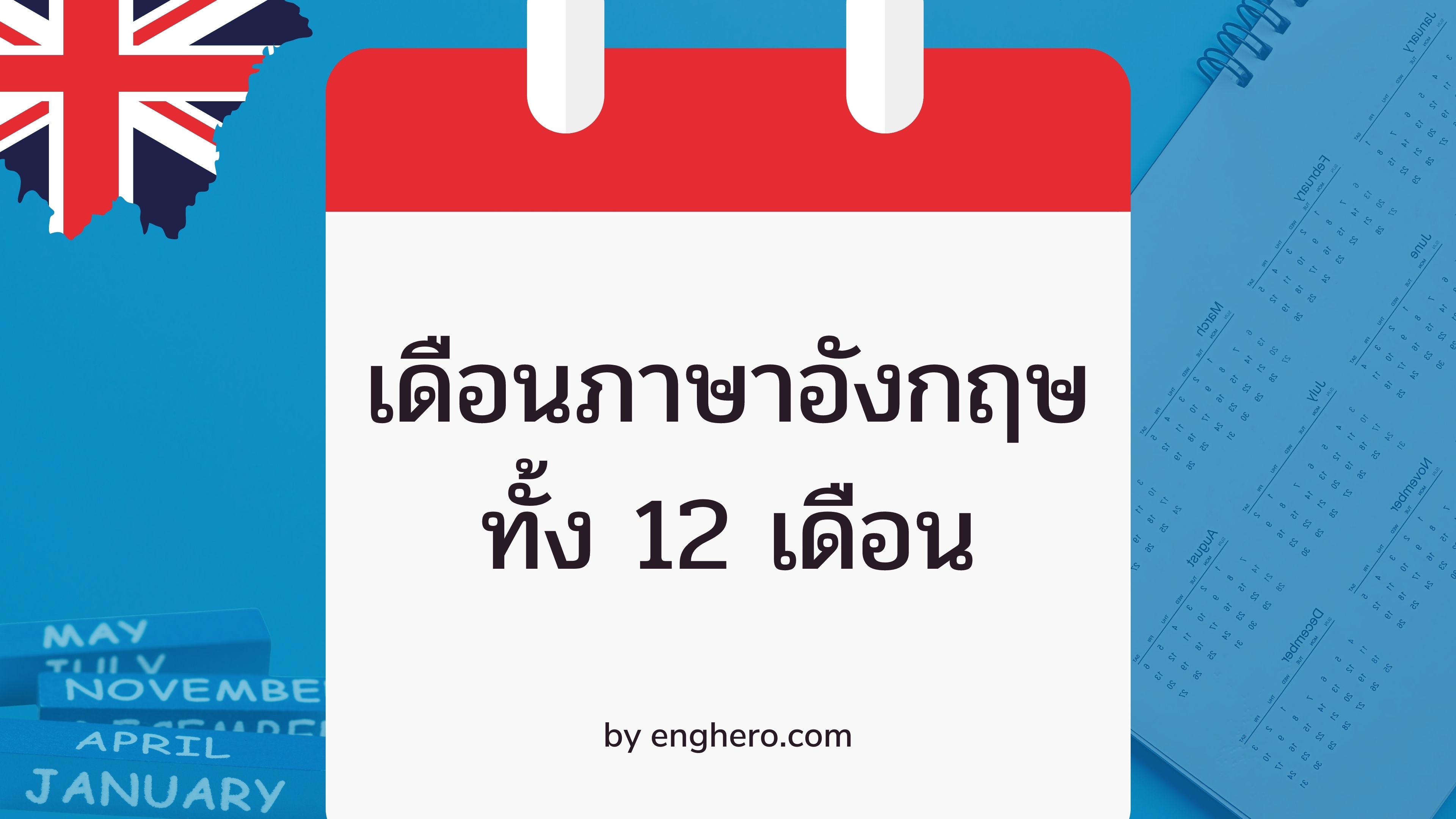ความสอดคล้องระหว่างประธานและกริยา

Subject – Verb Agreements
ความสอดคล้องระหว่างประธานและกริยา ภาษาอังกฤษเรียกว่า Subject – Verb Agreements มีความสอดคล้องของโครงสร้างให้จำดังนี้
1. มาดูกฎเบสิคกันก่อนเลย ถ้าประธานเป็นเอกพจน์คือมีหนึ่งเดียว กริยาเป็นเอกพจน์ และถ้าประธานมีหลายคนหรือหลายสิ่ง กริยาก็ต้องเป็นพหูพจน์ไปตามระเบียบ
เช่น
ประธานเอกพจน์ กริยาเอกพจน์ – He is an engineer.
ประธานพหูพจน์ กริยาพฆุพจน์ – They are engineers.
2. ถ้าประธานมี 2 ตัว เชื่อมด้วย “and” ให้ถือเป็นประธานพหูพจน์ กริยาจึงต้องเป็นพหูพจน์ เช่น
•My brother and I are twins.
แต่!! ถ้าประธานที่เชื่อมด้วย “and” แต่เป็นสิ่งเดียวกันหรือเป็นหน่วยเดียวกัน ให้ถือเป็นเอกพจน์ และใช้กริยาเอกพจน์ เช่น
•Bread and butter is my favorite breakfast. (ขนมปังและแยมหรือขนมปังทาแยมมันคือของชิ้นเดียวกัน มันจึงเป็นเอกพจน์)
3. ถ้าประธานตามหลังด้วยกลุ่มคำต่อไปนี้ with, along with, together with, include with, including, excluding, as well as, accompanied by ให้ผันกริยาให้สอดคล้องกับประธานตัวหน้าเท่านั้น
•Many boys including my brother like playing computer game.
•Tammy together with her family has reserved the table at this restaurant.
4. คำต่อไปนี้เมื่อเป็นประธานของประโยคให้ถือเป็นเอกพจน์ anybody, everybody, someone, anyone, everyone somebody, anything, everything, something, anywhere , everywhere, somewhere
each + singular N. either + singular N. neither + singular N.
each of + Plural N. either of + Plural N. neither of + plural N.
เช่น
•Everyone agrees to your plan.
•Each of the lessons takes an hour.
•Somebody steals my car.
•Anyone calls the police!
5. ประธานซึ่งเชื่อมด้วยคำต่อไปนี้ ตามด้วยกริยาเอกพจน์หรือพหูพจน์ ให้ดูจากประธานตัวที่อยู่หลังสุด ใกล้กริยาที่สุด
or neither… nor
either….or not only……but also
เช่น
•Not only Jim but also his friends are coming to the party tonight.
•Neither the Prime minister nor his representatives are to attend the meeting.
6. คำต่อไปนี้ถ้าใช้แทนคำนามนับได้ ถือเป็นพหูพจน์เสมอ all,both,(a) few, many ,severa ,some
เช่น
•All are going to miss the train.
•Few are attending the meeting.
•Many were invited to the lunch but only twelve showed up.
7. มาถึงคิวของคำบอกปริมาณกันบ้าง มีเยอะแยะแยกเป็นกลุ่มได้ดังนี้
7.1 วลีบอกปริมาณต่อไปนี้ถ้าตามด้วยนามเอกพจน์ กริยาต้องใช้เอกพจน์ ถ้าตามด้วยนามพหูพจน์กริยาต้องใช้พหูพจน์
a lot of plenty of most of some of
lots of all of none of percent of
เช่น
•I think a lot of English wine is too sweet.
•Plenty of people are in the room.
7.2 วลีบอกปริมาณต่อไปนี้ใช้กับคำนามนับได้ที่เป็นพหูพจน์ และกริยาก็ต้องเป็นพหูพจน์ตามด้วย ซึ่งได้แก่คำว่า
a number of many
a large number of a good many
a great number of a great many
เช่น
•A number of students are playing football.
•A large number of tourists get lost because of that sign.
7.3 วลีบอกปริมาณต่อไปนี้ เมื่อใช้กับนามนับไม่ได้ กริยาต้องใช้รูปเอกพจน์ตลอดไป
much a large number of
a great deal of a large amount of
a good deal of a large quantity of
เช่น
•A large amount of money was stolen from the bank.
8. ประธานที่ขึ้นต้นด้วย Infinitive Phrase (วลีที่นำหน้าด้วย to) หรือ gerund (Ving) ถือว่าเป็นเอกพจน์ กริยาต้องเป็นรูปเอกพจน์
เช่น
•To get up early is my habit.
•Swimming is my favorite sport.
9. ประโยคที่มี who, which, that เป็น Relative Pronoun กริยาของ Relative Pronoun จะใช้รูปของเอกพจน์หรือพหูพจน์ให้ยึดตามคำที่มันแทนซึ่งอยู่ข้างหน้า
เช่น
•The students who are trying hard will pass the exam. (who = students)
•That girl who wears pink dress is my younger sister. (who = girl)
10. จำนวนเงินหรือมาตราต่างๆ ถือเป็นเอกพจน์
เช่น
•Twenty thousand bahts is too high for this camera.
•Two hundred miles is a long way.
11. เศษส่วนของคำนามพหูพจน์ ใช้กริยาเป็นพหูพจน์ เศษส่วนของคำนามเอกพจน์ ใช้กริยาเป็นเอกพจน์
เช่น
•Two-thirds of the boys are absent.
•Two-thirds of the wall has been painted.
อ้างอิงและขอบขอบคุณ http://www.pasaangkit.com/subject-verb-agreement/

พูดคุย
ร่วมให้กำลังใจหรือติชม
















